
It has been a long wait of up to 40 years for thousands of Hindu and Sikh refugees from Afghanistan but now they can finally look forward to grant of Indian citizenship, thanks to the Modi government's push to a legislation in this regard in Parliament.
The Citizenship (Amendment) Bill, 2016, which seeks to amend an Act of 1955, was passed by the Lok Sabha on Tuesday and will now go to the Rajya Sabha for its approval.
The proposed legislation, which provides for grant of citizenship to certain minority communities from Afghanistan, Bangladesh and Pakistan, was passed by the Lok Sabha amid strong objections from Opposition parties like the Congress and the Left.
The Bill seeks to facilitate acquisition of citizenship by six identified minority communities namely Hindus, Sikhs, Jains, Buddhists, Christians and Parsis from Afghanistan, Pakistan and Bangladesh who came to India before December 31,, 2014.
Migrants from these communities were earlier given protection against legal action in the years 2015 & 2016 and long term visa provision was made for them.
Citizenship will be given to them only after due scrutiny and recommendation of district authorities and the State Government.
The minimum residency period for citizenship is being reduced from existing 12 years under the present law to 7 years.
The law will not be confined to the state of Assam but will also provide relief to persecuted migrants who have come through western borders of the country to states like Gujarat, Rajasthan, Delhi, Madhya Pradesh.
The beneficiaries of Citizenship Amendment Bill can reside in any state of the country and the burden of those persecuted migrants will be shared by the whole country.
The first batch of Hindu and Sikh refugees left Afghanistan after the assassination of President Najibullah as the country became unliveable because of religious persecution, harassment, abductions and forced conversions.
Around 15,000 of these refugees live in Delhi, 90 percent on 'Stay Visa', which is to be extended every year.
There is a provision for grant of 5-year 'Stay Visa' but with a condition that two Indian nationals stand guarantee for each refugee.
"The bill is not directly giving you the citizenship, it is an enabler," Subhimal Bhattacharjee, from Jookto organisation which works for such migrants on the ground in Assam.
He explained that the process of naturalization which today requires 12 years to live in this country would be reduced to 7 years.
"I think the intent is very good and lot of families who have been impacted will benefit," Bhattacharjee told ANI.
"All these countries having close contagious relations with India, whether it is Pakistan or Bangladesh. People there are facing prosecution. Where will they go? They will definitely look at India," he said.
"Before partition, everyone was a part of this country, so you cannot try and look the other way. I think it's a right step possibly should have happened far much earlier," he added.
Manohar Singh, an Afghan refugee and President of Khalsa Diwan Welfare Society, told ANI, "We have been trying for citizenship since long, may be more than 20-25 years. Thousands of files have been made but the process is very slow."
He said during the tenure of Prime Minister Atal Bihari Vajpayee, some Pakistani refugees migrated to Rajasthan and Gujarat and got citizenship in one go while they have been waiting.
"I request the government of India, Opposition parties and Members of Parliament to pass the Citizenship Amendment Bill so that our families and our children can get citizenship easily. I request all parties to support us in passing this bill and gift us our citizenship," he said.
"Citizenship is the biggest problem for us here in India. It was easy to get 'Stay Visa' earlier but now rules have been tightened," added Darshan singh, Secretary of Gurudwara Gurumardas in Tilak Nagar area of West Delhi.
Rekha Devi, who came to India three months back after her husband died in a suicide attack in Afghanistan on July 1, said, "We are facing so many problems here. We have nothing. There is no one to look after us... We depend on the Gurudwara people. We have Stay Visa for now but what will we do, when it expires after one year?"
Another migrant woman Harinder Kaur said, "We came to India almost 8 years back. We have nothing there. The Afghanistan government didn't provide us anything. Even Indian government is not doing anything for us. We are somehow managing. People here are struggling for citizenship for 25 years."
While many of the Afghan refugees chose western countries, these people chose India as they felt safe here.
"I came to India because we feel safe here, our religion is safe here. This is our own country," Manonhar Pal said.
Extremists are the real problem in Afghanistan. They have banned members of these communities from trading and employment unless they adopt Islam.
"These extremists are from Pakistan. They had grudges with us and they trouble us and our children in school and out. Once in 1992 when the situation worsened, our area was attacked. Gurudwara was attacked with missiles. Thirty of our people, including women and children, died. So they abandoned the city en masse and migrated to India via Pakistan. These attacks were carried out by Mujahideen from Pakistan," said Manohar Singh.
People spent years in suffering in Afghanistan and finally abandoned the country when the situation deteriorated. The turmoil and atrocities left generations uneducated.
"We faced problems in everything -- education, government jobs... Our entire generation is illiterate because of such conditions there," said Manohar Singh.
"Women are caged at home. They cannot step out without a man along. Wearing 'burqa' is mandatory there, no matter what religion you follow," he added.
"There is no school for us, I never went to school. I always wanted to go to school and study.. It is very difficult to go out and whenever we go out, we need to wear 'burqa'," said 19-year-old Preeti, daughter of Rekha Devi.
"It became impossible for us to live there after my father was killed there in an attack. So we came here," she said, hoping that her brothers can study here and do something worthwhile in life which she could not.
Harpal Kaur said she lost her husband in an attack, after which no one was with them. Finally they had to leave the country and came to India.
"Here also, there is no one to look after us. We are depending on Gurudwara," she said.
Amarjeet Kaur, originally from Kabul, said the Hindu children used to face taunts whenever they went out in the Afghan capital.
-ANI


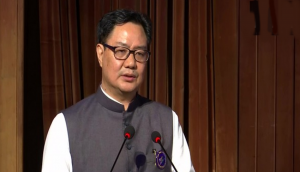
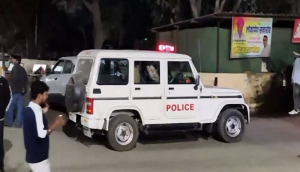
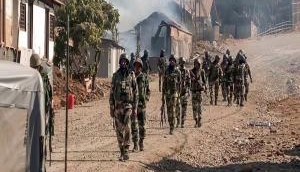
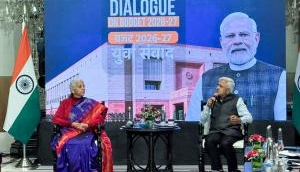
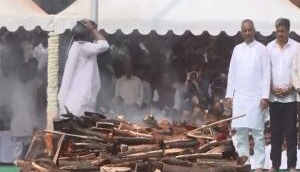
![BJP's Kapil Mishra recreates Shankar Mahadevan’s ‘Breathless’ song to highlight Delhi pollution [WATCH] BJP's Kapil Mishra recreates Shankar Mahadevan’s ‘Breathless’ song to highlight Delhi pollution [WATCH]](https://images.catchnews.com/upload/2022/11/03/kapil-mishra_240884_300x172.png)

![Anupam Kher shares pictures of his toned body on 67th birthday [MUST SEE] Anupam Kher shares pictures of his toned body on 67th birthday [MUST SEE]](https://images.catchnews.com/upload/2022/03/07/Anupam_kher_231145_300x172.jpg)






